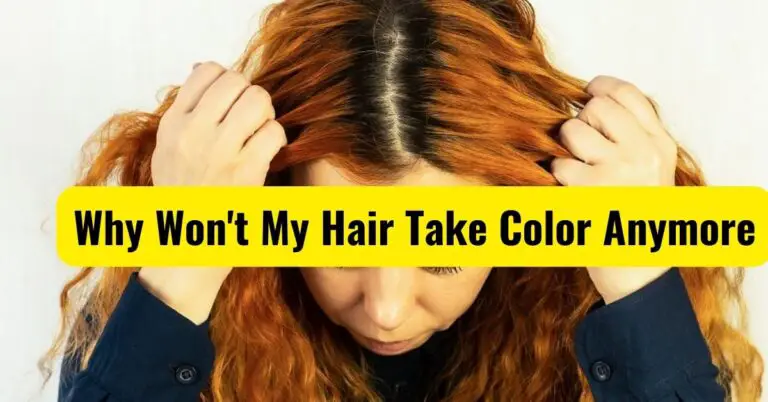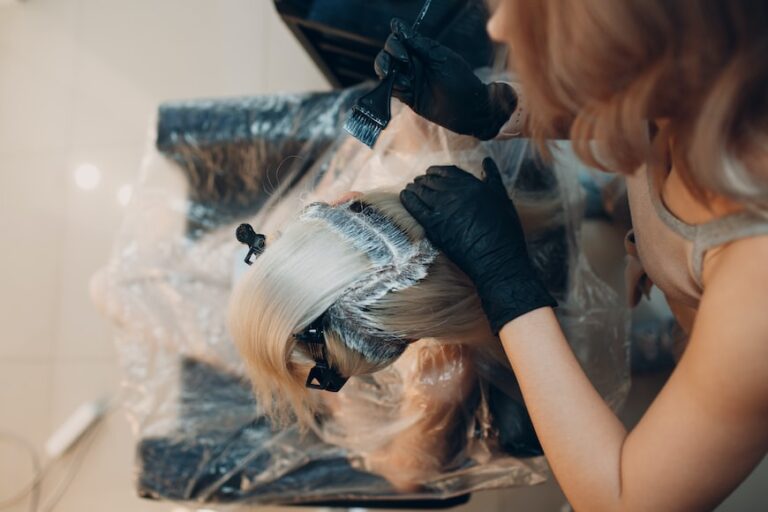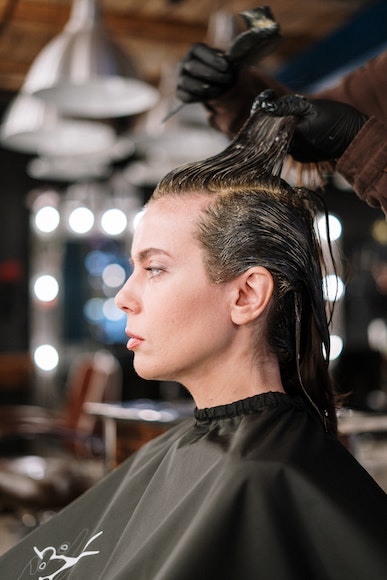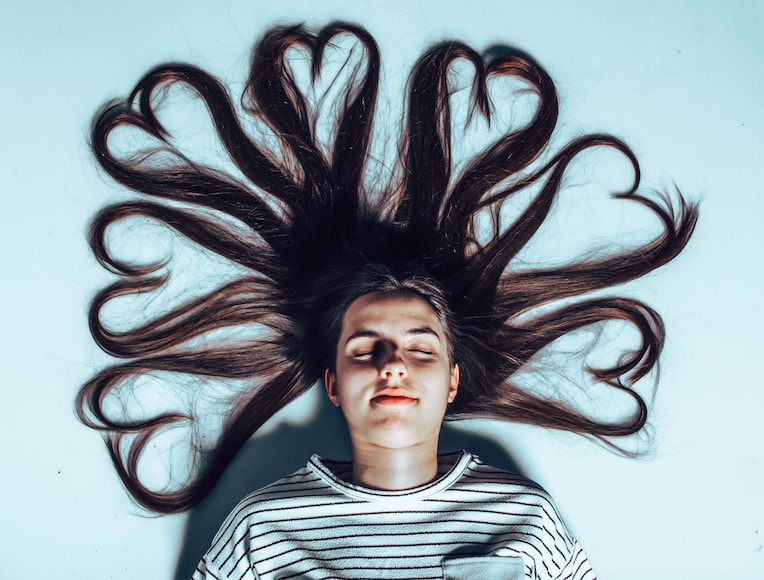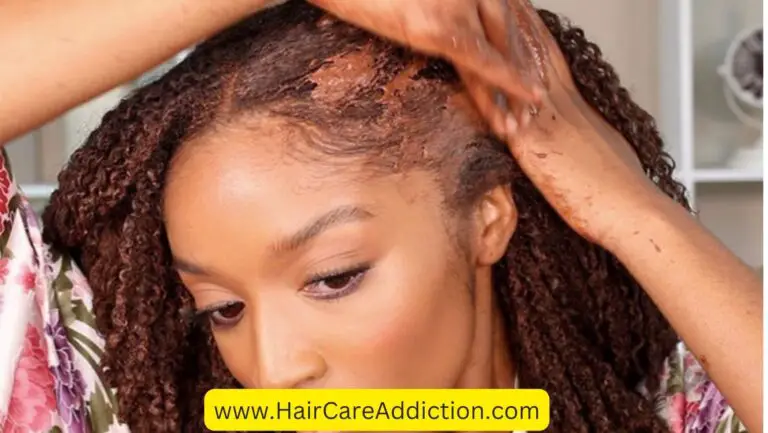Bleaching Over Henna: Before and After
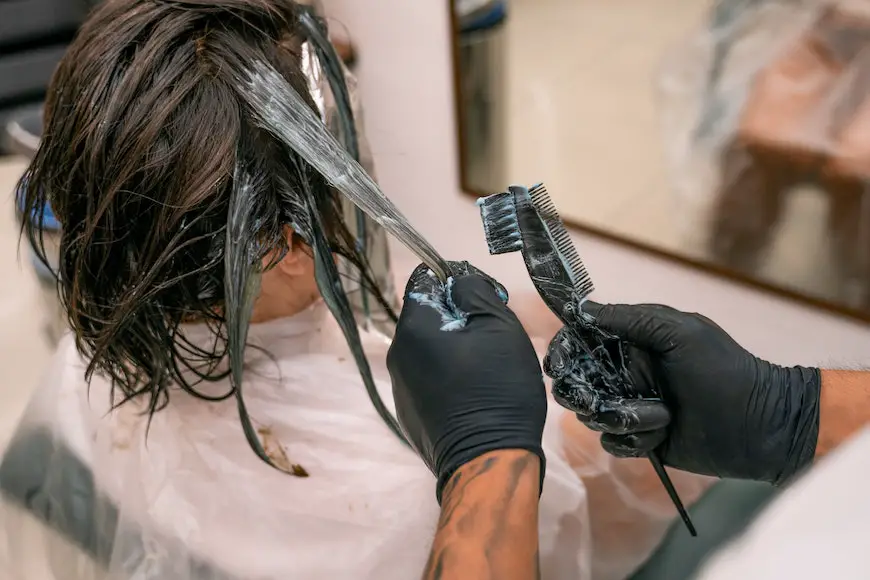
So, you’re considering bleaching over henna on your hair, right?
Well, let me give you some advice on what you can expect and what you should keep in mind before taking the plunge.
Can you do bleaching over henna?
Bleaching over henna can be done and there might be several reasons for choosing to bleach over henna-dyed hair including a change in hair color preference, and faded henna color.
But, first, it’s important to understand that henna is a natural dye that can stain your hair for up to 6 months.
So, if you’re thinking about bleaching over henna, you’re going to need some patience and some serious commitment to the bleaching process.
For Lush henna color, you may have to go through multiple bleaching sessions before you can successfully remove it and achieve your desired shade.
Tips: Before you start bleaching, it’s a good idea to do a bleach trial on a small section of your hair to see how your locks will react to the chemicals. This will also give you a better idea of how long it will take to reach your desired shade, and how much damage you can expect to your hair.
Will it damage the hair?

Bleaching is already a harsh process that can cause damage to your hair.
But when you bleach over henna, the bleach will have to work harder to remove the dye, which can increase the amount of damage to your hair.
Besides damage to hair, other potential reactions that can occur when you bleach over henna-dyed hair are unexpected color, and uneven results.
A word of caution: Only bleach hair that is colored with 100% natural and organic henna color. Henna color mixed with other ingredients causes unexpected reactions with the bleaching agent resulting in the unexpected result and more damage to hair.
The bleach will have to work harder to remove the henna, and the hair may end up dry, brittle, and prone to breakage.
So, before you decide to bleach over henna, it’s crucial to weigh the pros and cons and make an informed decision. If you’re not sure, you can always consult with a professional stylist who can give you personalized advice and guidance.
Read Also: Can you apply henna on relaxed hair?
How to safely bleach over henna? (Steps)
Here are some tips for safely bleaching over henna:
Remove Henna (Fade the color)
The first step in bleaching over henna is to remove as much henna from the hair as you can. Recently applied henna takes multiple sessions of bleaching while long and faded hennaed hair takes only a single session of bleaching.
To remove henna from the hair
- Use a Dandruff shampoo: A dandruff shampoo can help remove build-up from the hair and may also help remove some of the henna. For seven days, wash your hair with a dandruff shampoo every 48 hours and allow it to sit for three to five minutes. Then, rinse thoroughly and apply conditioner as needed.
Prepare for bleaching
If the henna color is still visible in your hair, bleaching will be necessary. Before proceeding, it’s important to give your hair a nourishing hydration treatment to strengthen it and prepare it for the bleaching process.
Bleach henna-colored hair
Process of bleaching over henna:
- Divide your hair into 4 sections by making a middle part and separating it from front to back and from ear to ear.
- In a plastic container, mix the white or blue bleaching powder with 30-volume developer and add 8 to 10 drops of coconut oil.
- Start with one section of your hair and apply the mixture to the lengths and ends with a dye brush. Repeat on the rest of your hair.
- Let the mixture sit for 20 minutes on the lengths and ends and for an additional 10 minutes on the roots.
- Rinse your hair with warm water and wash with shampoo and conditioner.
- Towel dry to remove excess water and air dry or blow dry at medium temperature.
Before and After
When can you bleach hair after henna?
Applying bleach over henna-dyed hair should be done with extreme caution, if at all. The timeframe for safely bleaching your hair after using henna depends largely on the type of henna you’ve used.
If you’ve used 100% pure henna with no added chemicals (often referred to as “body art quality” henna), it’s generally considered safe to bleach your hair once the henna has completely faded, which can take anywhere from 1 to 6 months.
Bleaching while the henna color is still strong can lead to unpredictable results because bleach cannot effectively remove henna, but rather lightens it, sometimes leaving hair with a brassy or reddish tone.
However, if you’ve used a henna compound (a blend of henna with other ingredients, sometimes including metallic salts), it is strongly advised not to bleach your hair.
The reaction between the bleach and the metallic salts can cause severe damage to your hair and may even result in a chemical reaction that heats up, potentially causing burns.
How to remove henna hair color naturally
While there’s no immediate, magic solution for removing henna from hair, there are a few techniques you can use to speed up the fading process and gradually remove the dye:
Oil Treatments: Oiling the hair is a natural way to loosen the henna pigments and can also nourish and condition your hair. Soak your hair in oil (olive, coconut, or argan oil are all good options), wrap it with a shower cap, and leave it on for a few hours or overnight. Wash and rinse as usual.
Lemon Juice: The citric acid in lemon juice can help pull out the henna color. However, lemon juice can also be drying to your hair, so it’s important to condition your hair afterwards.
Baking Soda and Lemon Juice: Mixing baking soda with lemon juice can create a potent mixture that helps remove henna. However, it can be drying and potentially damaging to your hair, so it should be used sparingly and followed with a deep conditioning treatment.
Clarifying Shampoo: This type of shampoo can help strip the henna color out of your hair over time. These shampoos can be quite harsh, so using a deep conditioner afterwards is crucial to maintain hair health.
Sun Exposure: The sun naturally bleaches hair and can help fade the henna color more quickly. But remember, too much sun exposure can also damage your hair and skin.
Remember, henna is a permanent hair dye, and the methods listed above will only gradually fade the color over time. Patience is required, as it can take several weeks or even months depending on how often the treatments are done and the original strength of the henna. Always make sure to nourish and condition your hair properly after each treatment to prevent damage.

